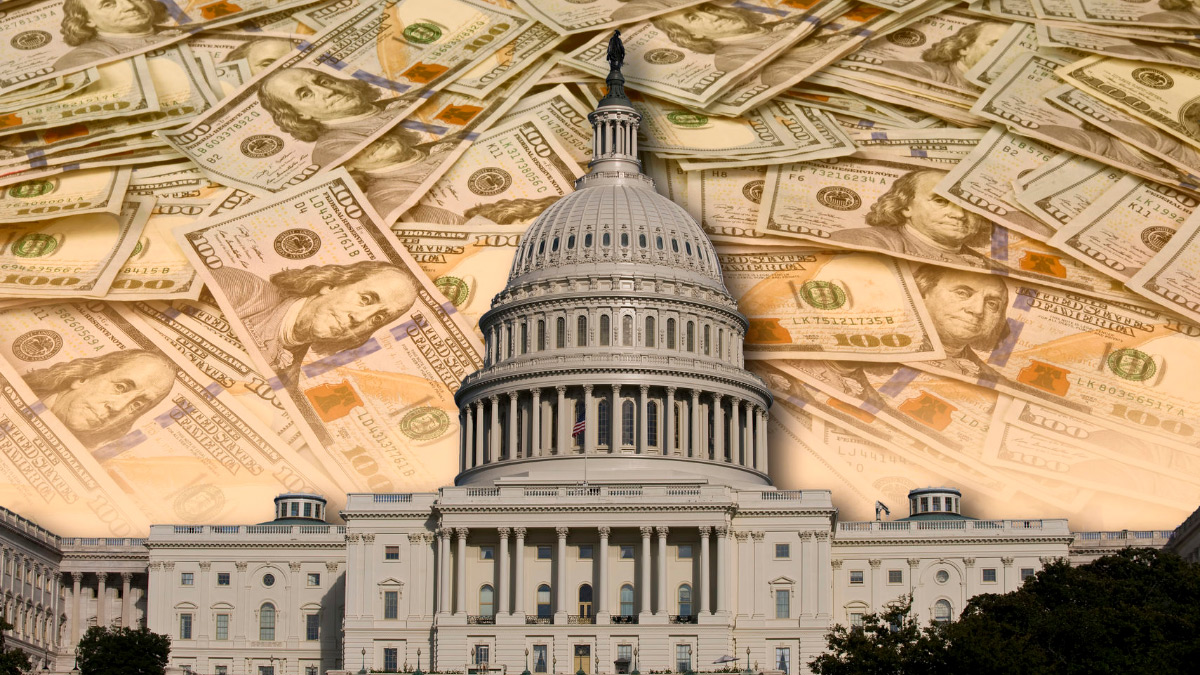The federal government is drowning the American people in debt. In a statement following the release of the new budget proposals, President Obama declared, “Rather than fight the same tired battles that have dominated Washington for decades, it’s time to try something new. Let’s invest in our people without leaving them a mountain of debt.”
It seems clear that the divorce between rhetoric and reality has finally hit an all-time high.
The fiscal year 2012 budget shows the 2011 deficit hitting a new record of $1.645 trillion and the national debt rising from $14 to $26.3 trillion by the end of 2021. The proposed cuts in spending come by redefining and reclassifying spending items such as Pell grants and transportation spending as mandatory rather than actual reductions in areas of discretionary spending. Unfortunately, these accounting classifications do nothing to remedy the spending problems that government faces, but only serve to increase the scope of federal powers by making what used to be budgetary items that could more easily be reduced harder to cut in the future.
In just the past two years, the national debt has increased by 43 percent. Since 2001, the gap between median household incomes and government spending has widened tremendously—with government spending per household far outpacing what the economy can afford. As the President prepares to heap further fiscal burdens on taxpayers, the discussion should turn on real and substantial cuts to the federal budget.
A principled “Abolitionist” stance aims at wholesale elimination of many programs that the federal government currently funds. Thus, the Independent Institute has outlined a number of ways to save billions of dollars in light of the recent shifts in public opinion toward the reduction of federal spending.
Entitlement programs, including Medicare, Medicaid and Social Security, constitute almost half of the total budget. Fortunately, history demonstrates that the market is adept at providing these goods: mainly healthcare, savings accounts, and charitable donations to those in need. If the government increases the eligibility age for these programs to 70, the annual deficit would fall over time by nearly a trillion dollars. These rule changes could be coupled with structured opt-out programs that allow individuals to choose how to save for their future and care for their health.
The war and defense budget constitutes 20 percent of federal spending. Immediate withdrawal and decommissioning of troops from Afghanistan and Iraq would cut spending by over $150 billion. Abolishing the Army Corps of Engineers and closing 750 military bases in 63 countries would reduce military and civilian personnel expenditures by another $145 billion. Ultimately, the focus should remain on ending the war immediately, restoring families, and exploring prospects for peace at home and abroad.
Furthermore, eliminating the Departments of Agriculture, Energy, and Commerce, among others, and privatizing Amtrak and air traffic control would render a savings of $434 billion.
If we add to that the abolition of the 2010 healthcare package and programs such as the Affordable Housing program, Commission on Fine Arts, Consumer Product Safety Commission, the Corporation for Public Broadcasting, National Endowment for the Arts, National Endowment for the Humanities, and the State Justice Institute—American taxpayers would save an additional $510 billion. If Congress were to approve a straightforward government payroll freeze and federal workforce reduction of 10 percent, Americans would save another $9 billion dollars. In total, these cuts would serve to scale back the federal government’s presence in the lives of everyday folks.
Friends of liberty and historians of political economy are perhaps pessimistic of the ability to starve the government’s appetite. These concerns are justified in light of the failure of even some of the strongest constitutional limits to curb the growth of the State. Nevertheless, proposals and popular discourse of this manner can help to influence the prevailing ideology and turn the tides of public opinion. Ideas matter and principled commitments to the ideas of liberty, freedom, and peace are necessary now more than ever.
The Abolitionist approach is required because the propensity of the government is to grow perpetually in size and scope. As Obama’s latest proposal demonstrates, any policy adopted through the political bargaining process will necessarily be a watered-down version. The time has come to put it all out on the table and begin cutting.








